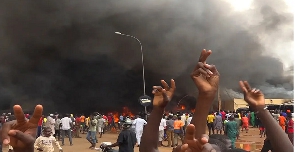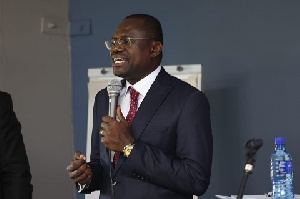In recent years, Africa has been grappling with an alarming resurgence of unconstitutional changes of governments, specifically military coups, that threaten the region's stability and development progress.
The latest blow came on July 30, 2023, when top military commanders in Gabon announced on national television that they had seized power, nullifying the results of the presidential election that declared President Ali Bongo the winner of a controversial third term. This unfortunate event marked the eighth successful military coup in Africa since 2020, reflecting a worrying trend that demands global attention.
Africa's political landscape has been marred by a series of military coups, creating an unsettling pattern of instability. The year 2023 alone has witnessed two successful coups, the earlier one occurring in Niger. But the situation isn't isolated to this year - 2020 saw Mali experience the only coup, while 2021 and 2022 both witnessed multiple countries undergoing military interventions, ranging from Chad and Mali to Guinea, Sudan, and Niger. Burkina Faso also saw two successful coups in 2022.
The causes behind this resurgence are multifaceted and deeply rooted in the socio-political fabric of these nations. Deteriorating security conditions, allegations of corruption, contested legislative elections, leaders manipulating constitutions to extend their rule, involvement in the drug trade, bad governance, and rampant poverty collectively fuel the frustration and disillusionment that can lead to military interventions.
A key concern is the alarming number of leaders who amend their countries' constitutions to cling to power, disregarding democratic norms and triggering unrest. Additionally, the economic aftermath of the COVID-19 pandemic has disproportionately affected developing countries, pushing citizens further into poverty and exacerbating issues of food insecurity. In this vulnerable environment, military coups can often appear as a desperate solution to the prevailing crises.
The international community must rally together to prevent further erosion of democratic principles in Africa. Diplomatic efforts, economic incentives, and international sanctions can be employed to discourage leaders from pursuing unconstitutional paths to power. The African Union (AU), as well as other regional and international organizations, should consistently condemn these actions and take proactive steps to mediate disputes and ensure adherence to democratic norms as well as punish culprits.
Addressing the root causes of coups requires a comprehensive approach. African governments must prioritize good governance, tackle corruption, and create inclusive policies that uplift marginalized communities. Investing in education, healthcare, and infrastructure will provide citizens with opportunities, reducing the allure of radical measures. Empowering civil society organizations and strengthening democratic institutions will help hold leaders accountable and offer peaceful avenues for political change.
Moreover, the global community must extend a helping hand to these nations in their efforts to rebuild and stabilize. Providing humanitarian aid, facilitating trade agreements, and promoting sustainable development can mitigate the adverse impacts of economic hardships, discouraging the rise of desperate solutions like military takeovers.
The resurgence of unconstitutional changes of government in Africa is a complex issue that demands a collective response. By promoting democratic values, addressing socio-economic disparities, and providing unwavering support, Africa can embark on a more stable and prosperous trajectory. Only through these concerted efforts can the continent hope to break free from the cycle of coups and pave the way for a brighter future.
It is hoped that Gabo should be the stopping point to the growing resurgence of unconstitutional changes of governments in Africa.
Click here to start the nomination process for the 2023 GhanaWeb Excellence Awards
Opinions of Thursday, 31 August 2023
Columnist: Fidelis Awonodomo Da-uri















